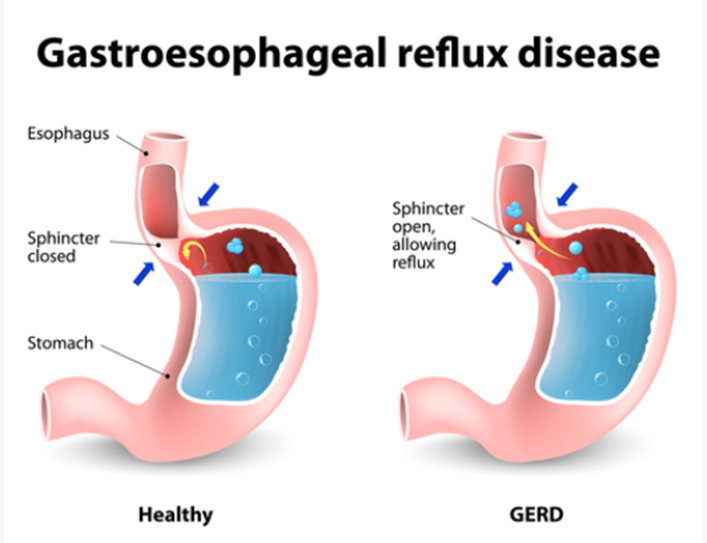Why Do We Need Strong Stomach Acid?
- Essential in absorbing certain nutrients, such as protein, vitamin B-12, and minerals
- Kills bacteria and other pathogens in the stomach to prevent infection
- Acid blocking medication increases risk of osteoporosis and fractures, pneumonia, Clostridium difficile and other gastrointestinal infections, vitamin B12 deficiency anemia, chronic kidney disease, and dementia.
Five steps to fixing your heartburn:
- Manage symptoms
- Identify causes of heartburn
- Change diet and lifestyle factors
- Repair stomach lining, look for infection, and support a healthy microbiome
- Wean medication slowly
Step 1 – Manage symptoms
At first, if you are on an acid blocking medicine stay on the lowest dose you can tolerate. To treat occasional breakthrough heartburn symptoms, choose one at time from this list:
- Chew 2 DGL wafers (this black licorice wafer also helps heal stomach so its good to chew 2 three times a day regardless of symptoms)
- Chew two Tums
- Drink 2 dissolved Alka-Seltzer
- Drink baking soda in water (1 teaspoon baking soda in 4 ounces of room temperature water) or plain seltzer water
Step 2 – Identify causes of heartburn
- Hiatal hernia (diaphragm dysfunction, belly fat)
- Infection – H. Pylori
- Gastric acid over-secretion and under-secretion both can create heartburn
- Hypersensitivity to a normal amount of acid (lack of mucus in stomach)
- Pancreatic insufficiency (digestive enzymes)
- SIBO – Small Intestinal Bacterial Overgrowth
- Stress, improper breathing, posture, spinal alignment
- Diet and Lifestyle – see step 3
Step 3 – Change diet and lifestyle
Start with “low hanging fruit” – things that are relatively easy. Eliminate as many of these as you can.
- Acid foods such as citrus and tomatoes
- Alcohol
- Caffeinated products
- Chocolate
- Dehydration
- Eating quickly and unconsciously, not chewing
- Eating too close to bedtime
- Fatty foods
- Food sensitivities – Consider testing (wheat & dairy?)
- Overeating
- Raw vegetables in excessive amounts
- Smoking
- Spicy foods
- Sugar are refined carbohydrates
- Tannins in black tea
- Wearing restrictive clothing
Step 4 – Repair the stomach lining, look for infection, support a healthy microbiome
Your doctor will create an individualized protocol based on your symptoms, history, and lab testing.
Step 5 – Weaning medication slowly
Go slow – this process will take weeks or months and depends a lot on steps 1 – 4. Stopping your medication abruptly can cause rebound acid hypersecretion.
If you are on a PPI, in collaboration with your doctor, you will wean the dose and frequency of the PPI first, then you’ll switch to an H2 blocker then wean it slowly.
| H2 Blockers – partially stop stomach acid secretion – nizatidine (Axid) – famotidine (Pepcid, Pepcid AC) – cimetidine (Tagamet, Tagamet HB) – ranitidine (Zantac) | PPI – almost completely stop stomach acid secretion – omeprazole (Prilosec, Prilosec OTC, Zegerid) – lansoprazole (Prevacid) – pantoprazole (Protonix) – rabeprazole (Aciphex) – esomeprazole (Nexium) – dexlansoprazole (Dexilant) |
When your digestive enzymes and/or hydrochloric acid are low
Heartburn symptoms can happen from having low digestive juices – both hydrochloric acid from your stomach, digestive enzymes from your small intestines and pancreas, and bile from the gallbladder. People low in digestive juices can have not only heartburn but often bloating, feeling overly full, abdominal pain, and other digestive symptoms.
Your doctor can test for and explore the use of digestive enzymes, bile, hydrochloric acid capsules, and the proper use of apple cider vinegar and digestive bitters.
Relaxation Therapy with Deep Breathing Reduces Heartburn Symptoms
Do not underestimate the impact of stress on your digestive tract!
Your Lower Esophageal Sphincter (LES), the muscle at the top of the stomach that closes when the stomach is digesting is affected by stress. When it doesn’t close at the right time (during digestion), it allows acid to reflux up into the esophagus. In a study, deep breathing exercises decreased severity and frequency of reflux episodes.
The LES, and the rest of your digestion, is controlled by the vagus nerve, an important part of the gut-brain connection. The vagus nerve controls the rest-and-digest side of your nervous system which in turn balances the flight-and-flight part of our nervous system.
Take many moments each day to check in with your breathing. Work on only breathing through your nose. Practice a slightly slower exhale to calm your vagus nerve. Check in with your posture’s effect on your breathing and diaphragm. Get up, stretch your ribs and back. Do a few twists or even better take a yoga class!
Read more about heartburn from Dr. Haynes:

